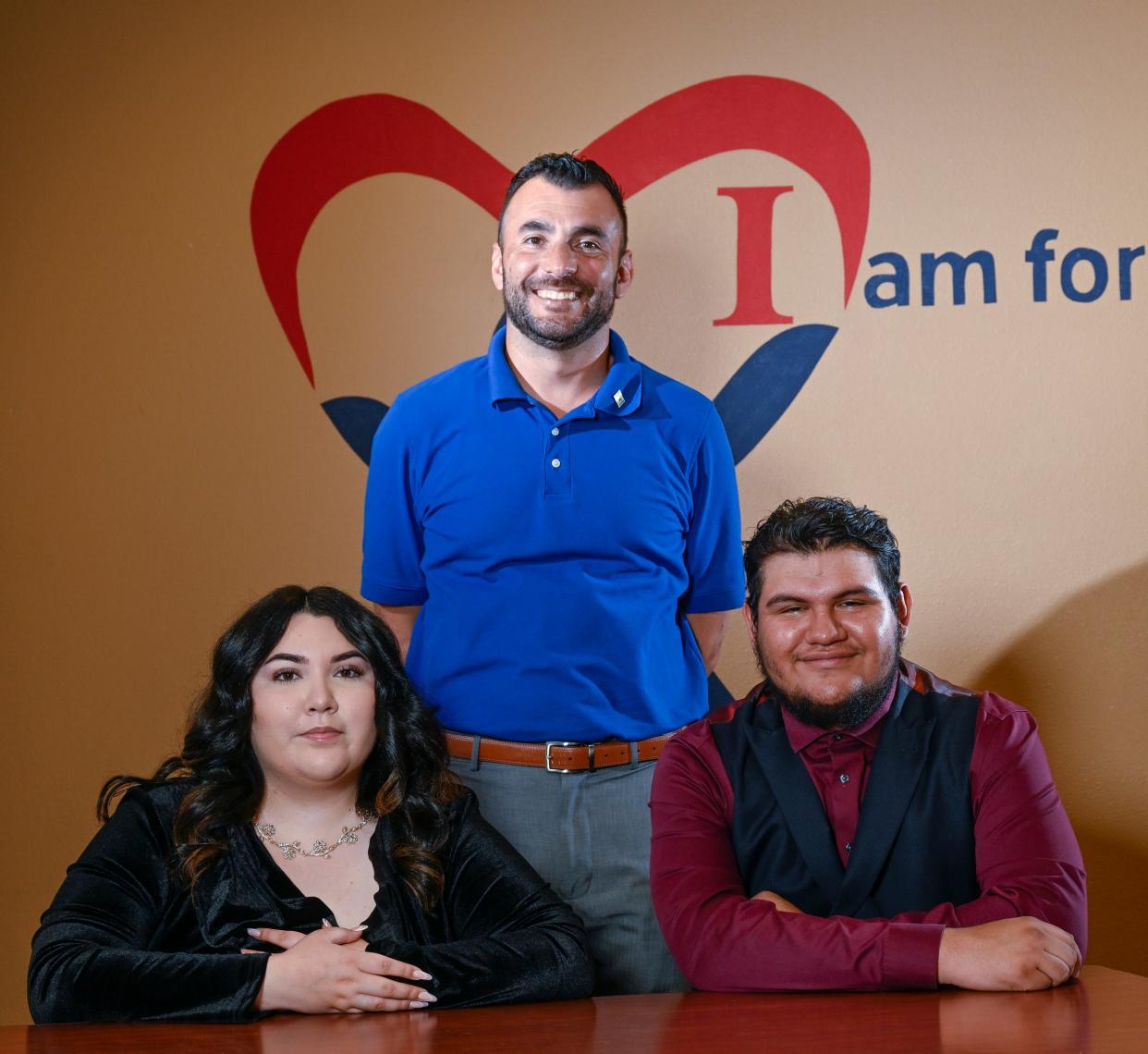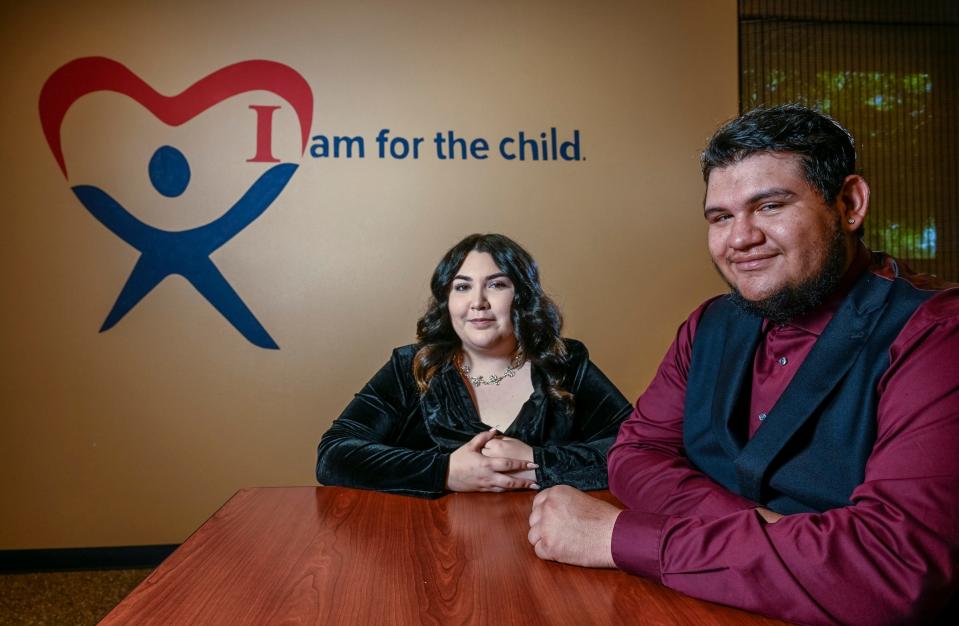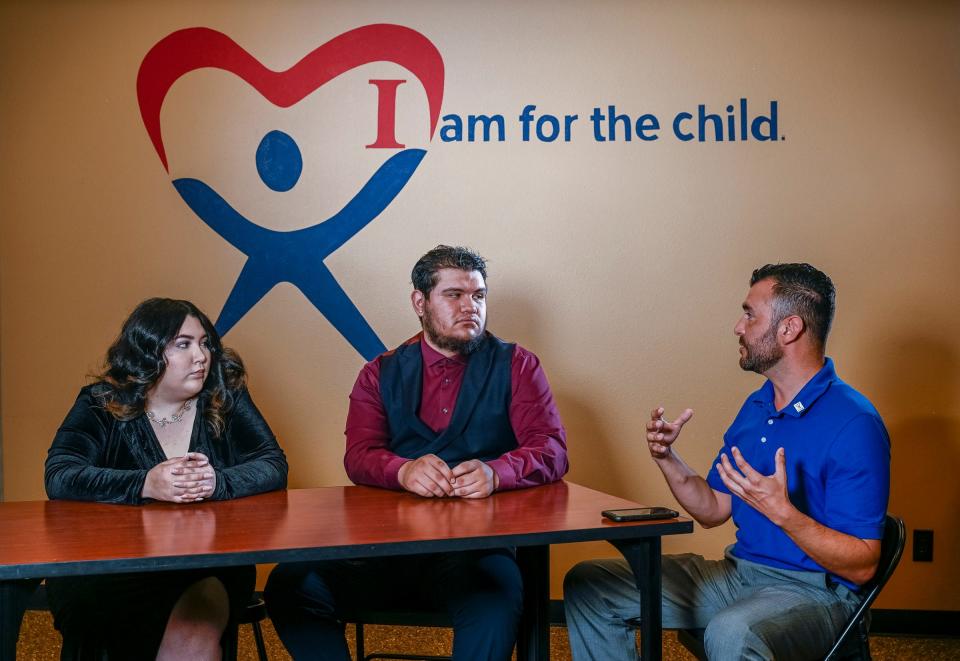Find out how you can give foster children hope with Court Appointed Special Advocates

What’s it like to grow up in the foster system?
Not easy. You’re there because there has been some kind of trauma or abuse in your biological home. You get shuttled from place to place. It’s hard to trust adults, so maybe you hoard food or lash out at those trying to help.
But the worst fear is a deep-seated feeling of why didn’t my parents want to keep me? What’s wrong with me? Experts say that feeling of not being wanted rarely goes away.
Two former foster children will tell their stories at the annual Once Upon a Dream fundraiser hosted by CASA (Court Appointed Special Advocates) on Friday, May 12. The goal is to encourage those attending to become volunteers and support CASA to give hope to the thousands of children put into the court system every year.
CASA is a non-profit organization that provides one-on-one mentors to children in foster care, helping them through the court system, making sure their needs are met and—maybe most importantly—taking time to listen to them.
Executive Director Alberto Ramos hopes the panel will give supporters a taste of what CASA does.
“I’m hoping they’ll get a better idea of why they should support CASA,” he said. “Although CASAs are volunteers, there are costs for training and staff behind them. So many children who need a CASA don’t get one because there are not enough volunteers.”
Saul Zavala
Saul was removed from his parents twice, at age 4 and then again at age 10, when his parents were still into drugs, gangs and abuse.
“I saw my parents run out the back, leaving us kids, when the police were about to knock down the door. That’s when my trust for adults went out the window,” he said.
He was shuttled between 15 foster homes and two group homes in just two years. Then he was finally placed with his uncle, who was a positive role model. He lived with his uncle from age 12 to 18, who provided a stable environment.
Even so, he kept doing “stupid” things.
“I was a horrible kid. I wouldn’t have kept me in my home,” he admitted. “I just wanted to wake up in the morning and not get beaten or told I had to move.”
He and his three siblings all had the same CASA advocates, husband and wife Karen and Randy Redfield. They stuck with him, even when he was acting out. Saul says they changed his life. Although he has aged out and the Redfields are no longer his CASAs, he still hangs out with them.
“They were always there, someone to talk with. They went above and beyond.”
Saul now has a steady girlfriend, who he says helps to keep him from doing stupid things. Now 20, he has a job this summer at a camp for foster kids. His goal is to find a permanent job so he can afford an apartment, because he will have to move out of foster youth transitional housing when he is 21.


Cheyenne Droney
Cheyenne was adopted at birth because her biological mom was on drugs. The foster family also adopted three other girls, and the girls are still like sisters. But when Cheyenne was 12, they all were removed from the home because of neglect and some abuse.
Child Welfare Services fought to keep all four children together, and they went to what Cheyenne calls a great foster home, but eventually their foster mom couldn’t keep all four girls.
Because of that, social workers came without notice late at night and took them away, which often happens to foster children when a situation changes. Cheyenne’s next foster mom lived in a mobile home. She was nice but elderly and after eight months had a stroke. So Cheyenne had to move again.
Altogether, Cheyenne lived in five foster homes from age 12 to 18. One became a toxic situation when the foster parents’ children refused to accept the foster kids.
Cheyenne was given a CASA advocate when she was 12.
“It was like having a best friend,” Cheyenne said. “I always looked forward to going out with her, not just because we were getting food, but because I could tell her what was happening, and she’d have good reactions.”
When foster kids turn 18, they can choose whether they want to keep their CASA. Cheyenne wanted to, and the two remain close.
In addition, CASA’s Family Connections Program helped Cheyenne find her biological mom and three half-brothers she didn’t know she had.
Cheyenne was lucky in that her foster parents and CASA always encouraged her to get as much schooling as she could. She and her boyfriend are both attending COS, and both want to go into helping professions. Cheyenne hopes to become a behavior counselor at a college.
CASAs make a difference
Things have turned out well for these two young people. That’s not always the case. But having a CASA can make a difference, help keep these vulnerable children safe and provide a chance for a positive future.
A few tickets for Friday’s fundraiser are still available. The event features dinner by the Vintage Press plus live and silent auctions.
CASA offers information sessions on how to become a CASA volunteer. Call for information.
Once Upon a Dream
5:30 p.m. Friday, May 12
Visalia Convention Center
303 E. Acequia Ave, Visalia
559 625-4007 or www.casatulareco.org
This article originally appeared on Visalia Times-Delta: Court Appointed Special Advocates gives hope to foster children

